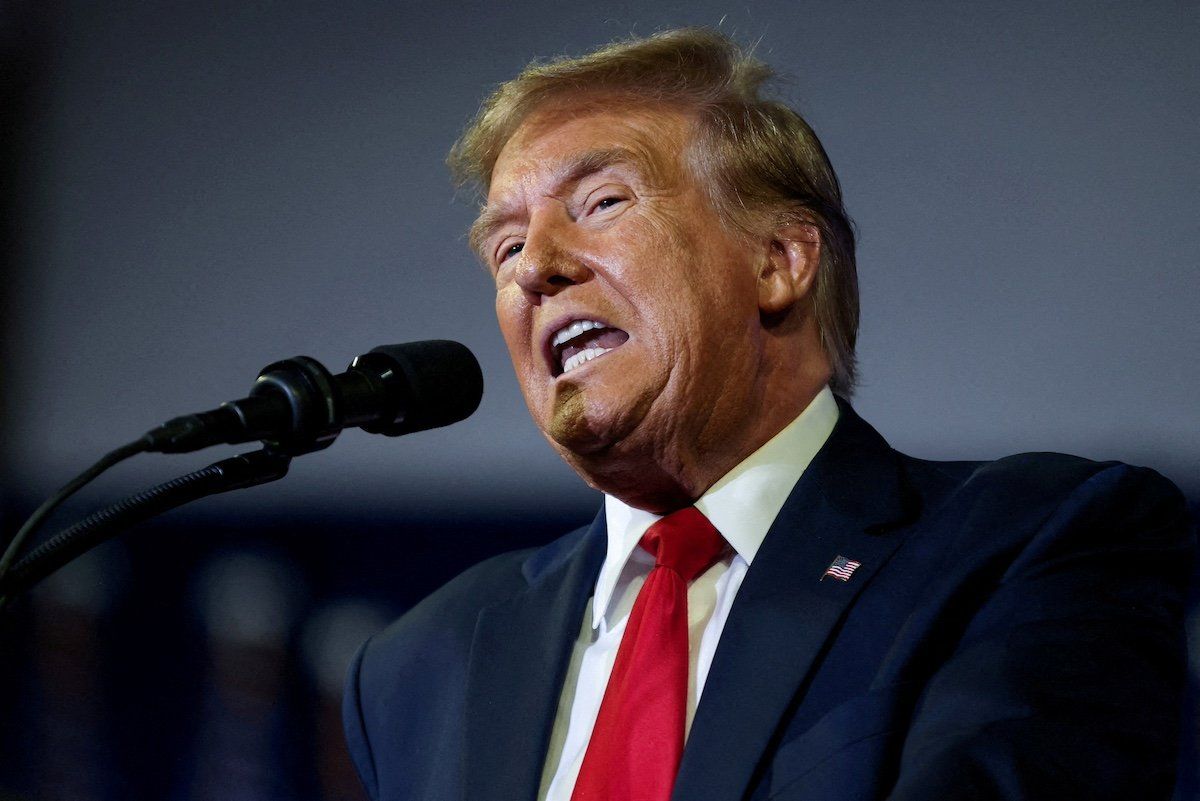Donald Trump can make his own claims to transforming the world beyond America’s borders – though whether it is by design, only he knows.
The frontrunner for the Republican presidential nomination made news last month when he said he would not necessarily protect NATO countries that did not hit spending targets.
He said he was asked by the leader of a “delinquent” nation whether he would protect them from Russian invasion, even if they did not meet NATO’s spending target of 2% of GDP. He said he replied: “No, I would not protect you. In fact, I would encourage them (the Russians) to do whatever the hell they want.”
The comments sent a chill through “delinquent” nations like Canada, which spends just 1.3% of GDP on defense and which, while it has said it aims to reach the 2% target someday, has taken no concrete steps to do so.
Now, the public is taking note. A new poll by the Angus Reid Institute found that slightly more than half of Canadians believe Canada should increase defense spending to 2% of GDP or more – a number that has remained constant since Russia invaded Ukraine in 2022.
However, a follow-up question mentioned Trump’s comments and asked again if spending should reach 2%. In that instance, support rose to 65% from 53%. There was a two-fold increase among younger women, who tend to recoil from all things Trump in most Canadian polls.
The survey said more than half of Canadians think Canada is falling behind with respect to its military power and diplomatic influence.
Increased pressure for more defense spending will put the Trudeau Liberal government on the horns of a dilemma. It has increased spending since coming to power in 2015 to fund new F35 fighter jets and 15 new frigates. But enthusiasm for the military has been lukewarm and in a recent “refocusing” of government spending, it announced it would cut expenditure on defense by more than $2 billion over the next three years. Hitting the 2% target could cost an extra $13 billion - money the Liberals do not have to spare.
Ian Bremmer, founder and president of Eurasia Group and GZERO Media, told Canada’s National Post earlier this month that the lack of concern about defense issues by politicians in Canada illustrates “short-termism and selfishness.”
“Canada has been allowed a free ride by dint of its geo-strategic position but also because there’s no consequences. It’s not as if the US has told Canada, ‘you’re going to be suspended from NATO if you don’t spend’, or ‘you’re not going to have access to US intelligence’ … None of that has happened (but), you know, maybe it should.”
Trump would likely concur.
